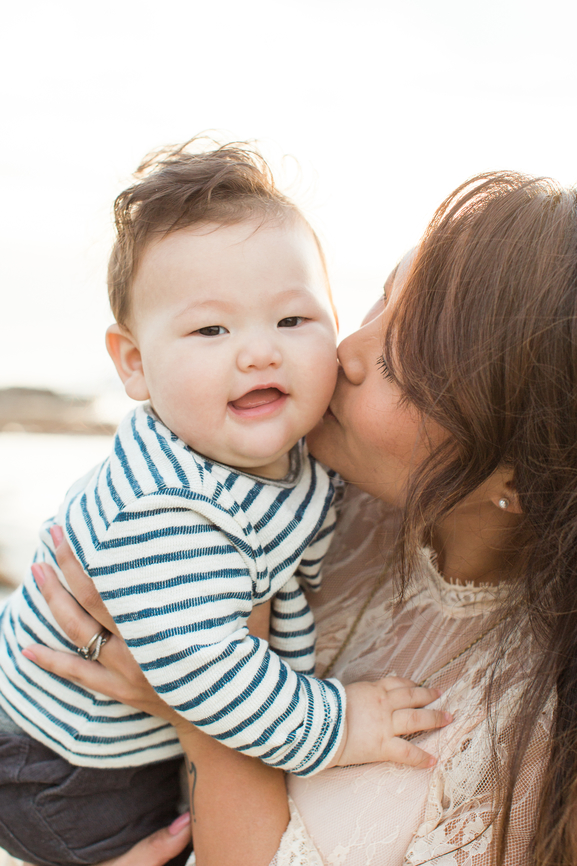A dad’s guide to safety on the stairs
Last time I was talking about home hazards when the kids get mobile. They all want to explore and they ...
Read MoreImportant notice to customers — product packaging changesLearn More
NEW FOOD PACKAGING IN STORE NOW
From August 2018, customers will notice our rebranded food packaging start to appear on shelf in all major stockists.
 CURRENT Packaging
CURRENT Packaging

 new Packaging
new Packaging
We are excited to announce our new packaging will start to appear on shelf from August 2018. This transition to new packaging will occur over a number of months. During this time there will be a mix of current and new packaging on shelf.
There are no major changes to these products, in some instances there is a small name change or slight recipe improvement, see below for the full details.
Products purchased via the website will be delivered to customers in our old packaging until the end of October. From November, products ordered from the website will be delivered in the new packaging.
Please note, our Infant Formula packaging will not be rebranded until later in 2019.
For any questions, connect with our team of accredited practising Dietitians on +61 3 6332 9200
Product name changes
 CURRENT Packaging
Organic Baby Rice
CURRENT Packaging
Organic Baby Rice

 NEW Packaging
Organic Rice with Prebiotic (GOS)
Note: Our Baby Rice recipe has been upgraded to now include GOS Prebiotic
NEW Packaging
Organic Rice with Prebiotic (GOS)
Note: Our Baby Rice recipe has been upgraded to now include GOS Prebiotic
 CURRENT Packaging
Organic Vanilla Rice Custard
CURRENT Packaging
Organic Vanilla Rice Custard

 NEW Packaging
Organic Milk & Vanilla Baby Rice
NEW Packaging
Organic Milk & Vanilla Baby Rice
 CURRENT Packaging
Organic Apple & Cinnamon Porridge
CURRENT Packaging
Organic Apple & Cinnamon Porridge

 NEW Packaging
Organic Apple & Cinnamon Baby Porridge
NEW Packaging
Organic Apple & Cinnamon Baby Porridge
 CURRENT Packaging
Organic Banana, Pear & Mango
CURRENT Packaging
Organic Banana, Pear & Mango

 New Packaging
Organic Banana, Pear, Apple & Mango
New Packaging
Organic Banana, Pear, Apple & Mango
 CURRENT Packaging
Organic Mango, Blueberry & Apple
CURRENT Packaging
Organic Mango, Blueberry & Apple

 New Packaging
Organic Blueberry, Mango & Apple
New Packaging
Organic Blueberry, Mango & Apple
 CURRENT Packaging
Organic Peach & Apple
CURRENT Packaging
Organic Peach & Apple

 New Packaging
Organic Grape, Apple & Peach
New Packaging
Organic Grape, Apple & Peach
 CURRENT Packaging
Organic Pumpkin & Tomato Risotto
CURRENT Packaging
Organic Pumpkin & Tomato Risotto

 New Packaging
Organic Pumpkin, Sweet Potato & Tomato
New Packaging
Organic Pumpkin, Sweet Potato & Tomato
 CURRENT Packaging
Organic Broccoli, Beef & Brown Rice
CURRENT Packaging
Organic Broccoli, Beef & Brown Rice

 New Packaging
Organic Beef & Vegetables
New Packaging
Organic Beef & Vegetables
 CURRENT Packaging
Organic Milk Rusks Toothiepegs
CURRENT Packaging
Organic Milk Rusks Toothiepegs

 New Packaging
Organic Milk Rusks
New Packaging
Organic Milk Rusks

Learning a new language is a daunting task, which can make you wonder how babies seem to do it so easily. Born with no understanding of any language or grammatical structure, most children take just four years to learn their mother tongue fluently.
Language is an incredibly complex system, so to learn it in four years is a remarkable feat. It’s also an incredibly powerful system, and an important part of your baby’s development.
The average baby doesn’t start using words until they’re about 12 months old, but language development begins long before that first word. In that first year of life babies learn a lot about sounds, words, and grammar they will use for subsequent language development.
From birth to one year old, children change the way they communicate by learning a repertoire of different sounds. By six months most babies know their own name, and by eight to ten months they recognise a few words even if they aren’t speaking them yet.
The second year is an important year for language development, with a range of developmental processes going on. “Word spurts”, where up to 50 words at a time are learnt, develop their working vocabulary from one word at the beginning of the year to 300 words by the end of the year. Two-year-olds learn to combine these words, and show a real desire to be more communicative. You’ll find their speech is more relevant and more frequent as they strive to articulate their new sounds more coherently.
The biggest change you’ll notice in the third year of life is the development of grammar. They’ll move on from the two or three word declarative sentences from their toddler years to full sentences, including questions and sentences. All this time they are getting better at articulating an ever-growing vocabulary. By the end of the third year, children are aware that words are made up of different sounds and are beginning to show an appreciation for rhymes. As they move into their fourth year, they’ll be able to weave short accounts about their day into conversations.
For most children, the fourth year is really a consolidation of the previous years. At this age, children are refining and developing the skills they’ve already learnt and are making further headway on their grammar. Complex, multi-clause sentences draw on an ever-widening vocabulary, and are articulated with more precision. As kids move from a home to school environment they learn to use language in different ways, and begin to learn how we represent the spoken word in text.
For all intents and purposes, language acquisition is completed in that fourth year of life, although language skills will continue to develop in every domain in subsequent years. Children develop at different rates, especially if they are exposed to more than one language at home.
If you’re worried about your own child’s language development, speak to your local health care provider who will find you the services you need or allay your fears if necessary.